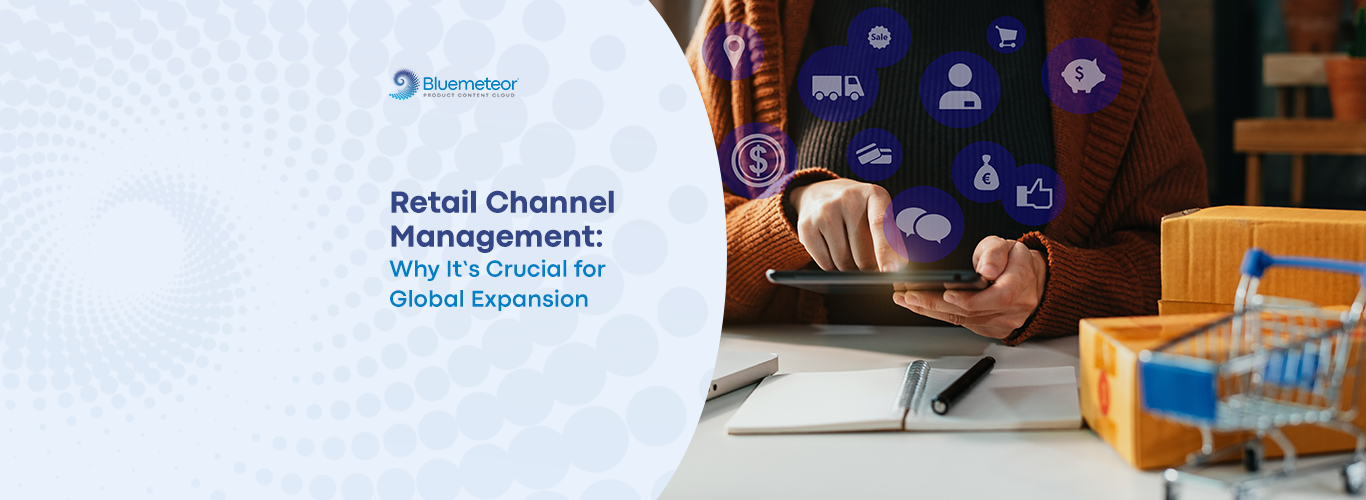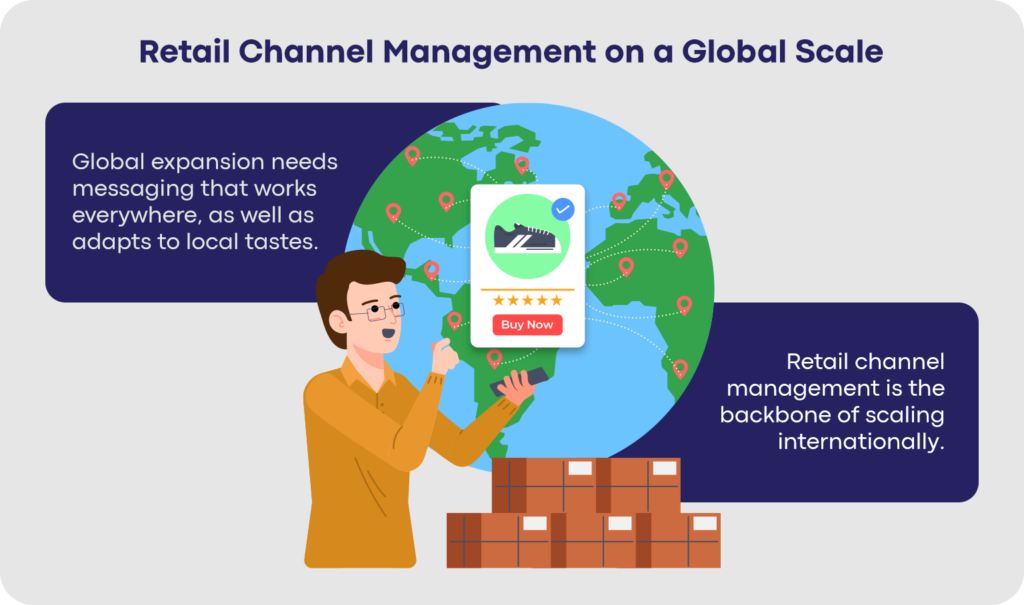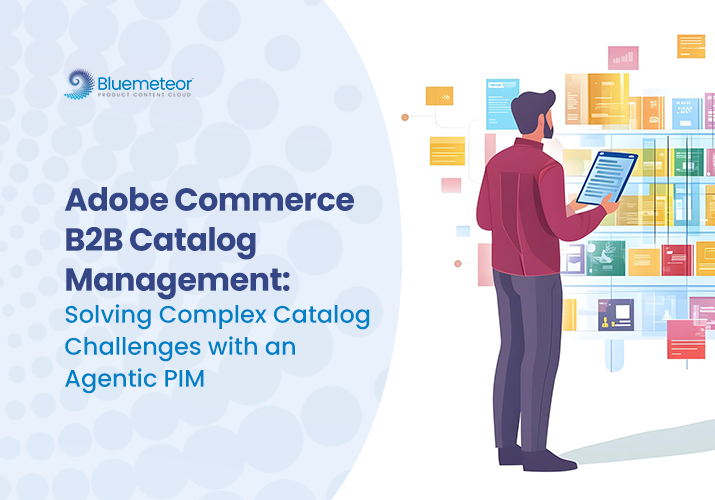Retail Channel Management: Why It’s Crucial for Global Expansion

Expanding into global markets requires effective retail channel management to ensure consistent product information and customer experiences. Centralized systems, unified product data, and strategic use of technology are key to overcoming challenges and scaling operations. By focusing on these elements, retailers can successfully navigate international markets and drive growth.
Expanding into global markets isn’t something that happens overnight. Retailers are drawn to the idea of reaching new international customers, but as exciting as that sounds, the process is layered with challenges.
One of the most crucial parts of international growth is managing retail channels effectively. This means balancing everything from product information to customer experience across various regions—and let’s face it, that’s not always a walk in the park.
This post dives into why getting retail channel management right is essential for global success, focusing on how a unified approach to product data can help pave the way for smooth expansion.
What Does Retail Channel Management Really Mean on a Global Scale?
Before you can get into the “how-to’s” of global retail management, it’s important to understand the “why” behind it. In simple terms, retail channel management is about making sure your product is available to customers across various sales channels—whether that’s physical stores, eCommerce sites, or third-party marketplaces.
The trick is ensuring the experience is seamless and consistent no matter where they’re buying. But when you’re selling internationally, things get complicated fast. There’s a lot to juggle, like cultural differences, language barriers, and varying local regulations.
What’s the bottom line? To succeed internationally, you need a strategy that keeps messaging and customer experience aligned, but also flexible enough to work with each market’s specific needs.
Key Takeaways:
- Global expansion requires messaging that works everywhere, but also adapts to local tastes.
- Retail channel management is the backbone of scaling internationally.

Why Having Solid Product Data is Key to Success
Imagine this scenario: You’re trying to sell in a new market, but there’s a small translation error in your product description—suddenly, your customers think your item does something completely different than it actually does.
Not exactly the best first impression, right? That’s why having unified, accurate product data is so crucial.
When your product information is clear and consistent across the board, trust follows. Customers are more likely to buy from a brand they can rely on, and this is especially true when they’re shopping from a brand they’ve never heard of before.
Benefits of Unified Product Data:
- Localization: Customize product details, descriptions, and images to fit local language and preferences.
- Compliance: Ensure your products meet all regulatory requirements in each region.
- Trust Building: Deliver accurate, consistent information that builds your brand’s credibility.
The Challenges of Managing Multi-Channel Retail Globally
As you expand, you’re probably going to end up with a variety of sales channels. Each one requires its own strategy because, let’s face it, what works on Amazon in the U.S. doesn’t necessarily work on Alibaba in China. And that’s where the challenges begin.
Here are a few of the issues you might run into:
- Data Silos: Different systems make it hard to keep your product information up to date across channels.
- Cultural Nuances: Customer preferences can vary drastically across regions, so your approach might need to shift.
- Regulatory Hurdles: Every market has different laws and compliance standards.
The best way to tackle these challenges? Integrate your systems so that everything syncs, and your brand always feels cohesive, no matter where your customers are shopping.
The Power of Centralized Systems
When all your product data is stored in one place, it’s a game-changer. Centralized systems let you update product information in real time, reducing the chances of errors and saving you time as you expand.
Here’s how centralized systems help:
- Streamline Updates: Change product details across all channels from one system.
- Enhance Efficiency: Cut down on manual work and reduce human error.
- Improve Analytics: Get a clearer picture of how your products are performing across different channels.
The Role of Data Governance in International Retail
As you enter new markets, the stakes are higher. International laws and regulations are not something you want to mess around with. Whether it’s product labeling, environmental standards, or something else, you’ve got to make sure your data is accurate and compliant.
Best practices for data governance include:
- Establishing clear policies for product data management.
- Regularly auditing your data to ensure compliance.
- Training your teams on local regulations so they can avoid potential missteps.
Mastering Omnichannel Strategies for Global Markets
In a global market, your customers expect to shop across multiple channels without missing a beat. Whether they’re shopping in-store, online, or through a marketplace, they want a consistent experience.
To achieve omnichannel success, you’ll need:
- Integrated Systems: Make sure inventory, pricing, and product info are consistent everywhere.
- Localized Customer Experiences: Customize your messaging and promotions to fit each market’s preferences.
- Real-Time Data Access: Respond quickly to customer questions and market changes.
Measuring Success in Retail Channel Management
You can’t manage what you don’t measure. So, it’s important to track key metrics like sales growth, customer satisfaction, and channel performance to make sure you’re on the right track.
Key metrics to keep an eye on:
- Sales Growth: Track revenue increases across different channels.
- Customer Satisfaction: Gauge how customers feel about your products in different regions.
- Channel Performance: See which channels are bringing in the most revenue.
- Time-to-Market: Measure how quickly you can launch in new markets
Building Collaborative Supplier Relationships
Lastly, don’t forget the importance of strong supplier relationships. They play a huge role in ensuring your product data is timely, accurate, and up-to-date, which can make or break your global success.
Collaboration Best Practices:
- Communicate clearly about what you need from your suppliers.
- Use automation to streamline data sharing.
- Regularly evaluate supplier performance.
Conclusion:
Retail channel management is at the heart of your global expansion strategy. By focusing on a unified approach to product data, centralized systems, and solid partnerships with suppliers, you can navigate the complexities of international markets with confidence.
It’s not an easy road, but with the right tools and strategies, you’ll be able to unlock the opportunities of a global audience.
Discover how Bluemeteor Product Content Cloud simplifies managing multiple sales channels globally. From unifying product data to ensuring compliance, our platform is designed to make your expansion seamless.
Related Articles
Recent Post
Categories




